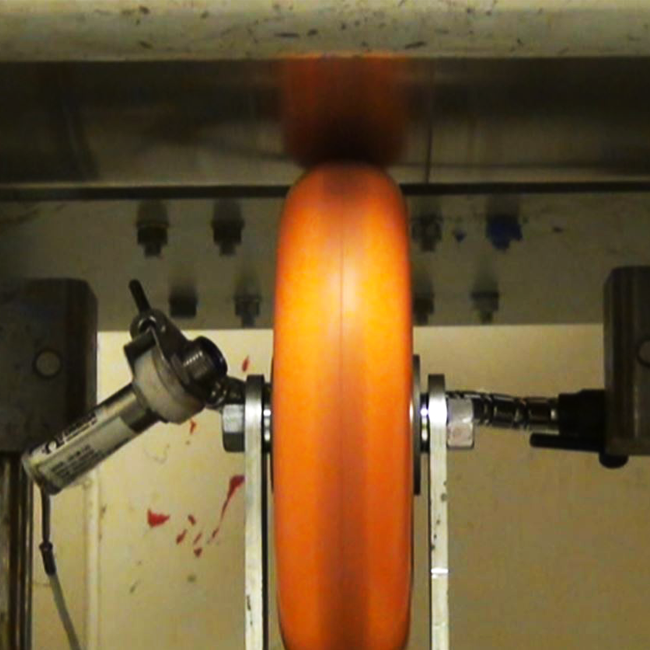

Now that you understand some of the reasons why your casters are not lasting longer than we covered in Part I, we can look at some ideas to help with that. Again, most failures I see in the industry are caused by the application. Let’s discuss some of those.
If the poly is chunking off the wheel or completely delaminating from the core, you probably have a weight or speed issue. Or, a combination of both. The fix for that is looking at a polyurethane that has a higher capacity or a poly that is made for higher heat. You can also go to a thicker poly if you are currently using the ½” thick standard.
Typically swivel sections become damaged when there is shock loading or sideloading on the cart or dolly. Shock loading is when the cart is being loaded by a forklift and the operator slams the load down on the top of the cart or dolly. When this happens, you may need to look at going to a swivel section that is 2x the capacity needed for the application. For example, if your total load is 1,500 lbs but you are shock loading. In this type of situation, you may want to jump up to a 2,500-3,000 lb capacity swivel section.
This normally is caused by operator error. I typically see this in applications where the forklift operator comes in from the side to pick the load off the cart. When the forklift hits the side of the cart, it can cause the rigs to bend at the legs. And in worst-case scenarios, it can completely break the welds off if there is too much force put on them.
The fix here can be a couple of things. Like the earlier example, you can go to a heavier duty rig. There are also things you can add to the caster. Leg ties add strength to the rigid caster by welding a gusset between the legs. You can also go to a Hercules design, which strengthens the legs to help limit the bending.
The most common bearings used in the caster industry are roller bearings, tapered roller bearings, and ball bearings. If you are having bearing failures — because your application is causing the grease to come out of the wheels — you would want to look at changing to a ball bearing. If your bearings are getting crushed because of the load, you should consider going with a heavier-duty tapered bearing. It is always good to have some type of maintenance schedule to make sure the bearings are in good working order. If the bearing fails it can cause damage to the wheel core.
Speaking of maintenance, another way to extend the life of your casters is by switching to a maintenance-free caster. If you do not have a maintenance schedule for putting grease in the swivel sections and wheels at least twice a year, going to a maintenance-free caster can help.
I hope this helps you determine what the problem is and how you can fix it and help you make your casters last longer.